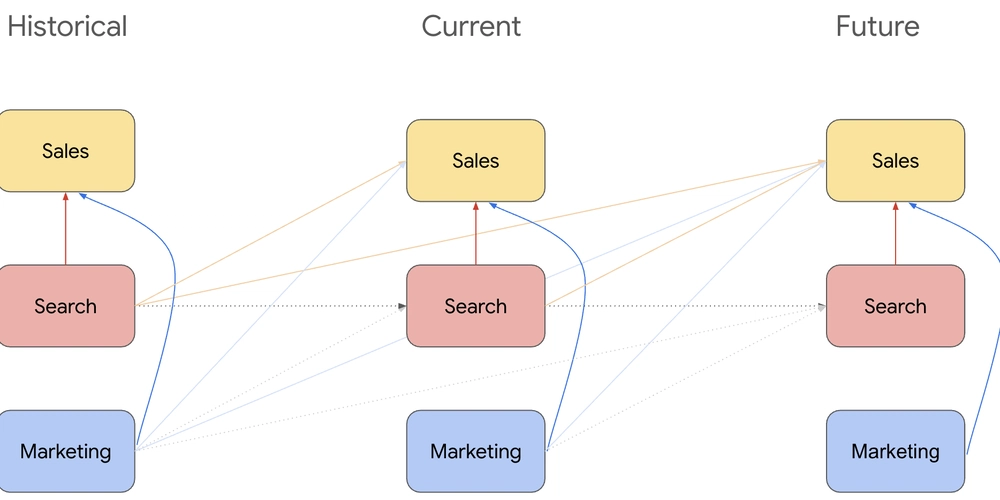Linux Dedicated Servers: The Secret to Unmatched Hosting Performance
A dedicated Linux server is the backbone of high-performance hosting, providing businesses with complete control, flexibility, and security. Unlike shared hosting or VPS solutions, a dedicated server ensures that all resources are allocated to a single user, making it the ideal choice for businesses requiring top-tier reliability and speed. Linux, known for its stability, efficiency, and open-source nature, is the preferred operating system for dedicated servers worldwide. It provides a robust platform for hosting applications, websites, and databases while minimizing overhead costs and maximizing performance. The Power of a Linux Dedicated Server 1. Unparalleled Performance and Speed When you opt for a Linux dedicated server, you eliminate the resource-sharing bottlenecks common in shared hosting. Since the server is exclusively allocated to you, CPU, RAM, and bandwidth remain unaffected by external users. This results in faster load times, seamless data processing, and improved overall performance. Linux is a lightweight operating system that consumes fewer resources compared to Windows-based servers. This efficiency allows Linux servers to handle higher workloads without compromising speed. 2. Superior Security and Reliability Security is a primary concern for businesses that handle sensitive data. Linux is well-known for its strong security architecture, reducing vulnerabilities and minimizing the risk of cyber threats. Features like SELinux (Security-Enhanced Linux) and robust user privilege controls make it a safe environment for hosting mission-critical applications. Furthermore, Linux servers are less prone to crashes and downtime. With proper configuration and regular updates, businesses can achieve near 100% uptime, ensuring seamless user experiences and operational continuity. 3. Complete Root Access and Customization Unlike shared hosting, where you have limited control over configurations, a Linux dedicated server grants full root access. This means you can customize the server to fit your specific needs, install required applications, configure security settings, and optimize performance without restrictions. Whether you need to deploy Apache, Nginx, MySQL, or other software, a Linux dedicated server allows for seamless integration and optimization. 4. Cost-Effectiveness and Licensing Benefits Linux is an open-source operating system, meaning there are no expensive licensing fees associated with it. Unlike Windows servers, which require costly licensing, Linux reduces overall operational expenses while providing the same, if not better, performance and reliability. Additionally, Linux servers consume fewer resources, reducing the need for expensive hardware upgrades. This makes them a budget-friendly yet powerful solution for businesses of all sizes. 5. Scalability for Growing Businesses A Linux dedicated server is highly scalable, making it an excellent option for businesses planning to expand. Whether you need more storage, higher processing power, or additional applications, you can scale your server resources without switching hosting environments. This flexibility ensures that as your business grows, your server infrastructure can adapt accordingly, preventing unnecessary downtime and performance bottlenecks. Key Use Cases for Linux Dedicated Servers Hosting High-Traffic Websites If your website experiences heavy traffic, a Linux dedicated server ensures optimal speed and performance, preventing slow load times and crashes. Running Resource-Intensive Applications From machine learning algorithms to complex database management, Linux dedicated servers are perfect for applications that require substantial computing power. Gaming Servers Many gaming communities rely on Linux dedicated servers for hosting multiplayer games due to their low latency, stable performance, and security features. Enterprise-Level Email Hosting Businesses that need reliable email hosting can benefit from Linux dedicated servers, which offer enhanced security, spam control, and seamless email management. Database Management Linux servers excel in handling large databases with applications like MySQL, PostgreSQL, and MongoDB, ensuring smooth operations for data-driven enterprises. Choosing the Right Linux Distribution for Your Dedicated Server Selecting the right Linux distribution is crucial for maximizing server performance. Some of the most popular options include: - Ubuntu Server: User-friendly and well-supported, ideal for beginners and enterprises alike. - CentOS: A stable and secure choice, often used in corporate environments. - Debian: Known for its robustness and security, making it a preferred option for developers. - AlmaLinux/Rocky Linux: Popular alternatives to CentOS, offering long-term support and reliability. **- Arch Linux: **Best for users who want complete control and customization over their server. Each distribution has its strengths, so t

A dedicated Linux server is the backbone of high-performance hosting, providing businesses with complete control, flexibility, and security. Unlike shared hosting or VPS solutions, a dedicated server ensures that all resources are allocated to a single user, making it the ideal choice for businesses requiring top-tier reliability and speed.
Linux, known for its stability, efficiency, and open-source nature, is the preferred operating system for dedicated servers worldwide. It provides a robust platform for hosting applications, websites, and databases while minimizing overhead costs and maximizing performance.
The Power of a Linux Dedicated Server
1. Unparalleled Performance and Speed
When you opt for a Linux dedicated server, you eliminate the resource-sharing bottlenecks common in shared hosting. Since the server is exclusively allocated to you, CPU, RAM, and bandwidth remain unaffected by external users. This results in faster load times, seamless data processing, and improved overall performance.
Linux is a lightweight operating system that consumes fewer resources compared to Windows-based servers. This efficiency allows Linux servers to handle higher workloads without compromising speed.
2. Superior Security and Reliability
Security is a primary concern for businesses that handle sensitive data. Linux is well-known for its strong security architecture, reducing vulnerabilities and minimizing the risk of cyber threats. Features like SELinux (Security-Enhanced Linux) and robust user privilege controls make it a safe environment for hosting mission-critical applications.
Furthermore, Linux servers are less prone to crashes and downtime. With proper configuration and regular updates, businesses can achieve near 100% uptime, ensuring seamless user experiences and operational continuity.
3. Complete Root Access and Customization
Unlike shared hosting, where you have limited control over configurations, a Linux dedicated server grants full root access. This means you can customize the server to fit your specific needs, install required applications, configure security settings, and optimize performance without restrictions.
Whether you need to deploy Apache, Nginx, MySQL, or other software, a Linux dedicated server allows for seamless integration and optimization.
4. Cost-Effectiveness and Licensing Benefits
Linux is an open-source operating system, meaning there are no expensive licensing fees associated with it. Unlike Windows servers, which require costly licensing, Linux reduces overall operational expenses while providing the same, if not better, performance and reliability.
Additionally, Linux servers consume fewer resources, reducing the need for expensive hardware upgrades. This makes them a budget-friendly yet powerful solution for businesses of all sizes.
5. Scalability for Growing Businesses
A Linux dedicated server is highly scalable, making it an excellent option for businesses planning to expand. Whether you need more storage, higher processing power, or additional applications, you can scale your server resources without switching hosting environments.
This flexibility ensures that as your business grows, your server infrastructure can adapt accordingly, preventing unnecessary downtime and performance bottlenecks.
Key Use Cases for Linux Dedicated Servers
Hosting High-Traffic Websites
If your website experiences heavy traffic, a Linux dedicated server ensures optimal speed and performance, preventing slow load times and crashes.
Running Resource-Intensive Applications
From machine learning algorithms to complex database management, Linux dedicated servers are perfect for applications that require substantial computing power.
Gaming Servers
Many gaming communities rely on Linux dedicated servers for hosting multiplayer games due to their low latency, stable performance, and security features.
Enterprise-Level Email Hosting
Businesses that need reliable email hosting can benefit from Linux dedicated servers, which offer enhanced security, spam control, and seamless email management.
Database Management
Linux servers excel in handling large databases with applications like MySQL, PostgreSQL, and MongoDB, ensuring smooth operations for data-driven enterprises.
Choosing the Right Linux Distribution for Your Dedicated Server
Selecting the right Linux distribution is crucial for maximizing server performance. Some of the most popular options include:
- Ubuntu Server: User-friendly and well-supported, ideal for beginners and enterprises alike.
- CentOS: A stable and secure choice, often used in corporate environments.
- Debian: Known for its robustness and security, making it a preferred option for developers.
- AlmaLinux/Rocky Linux: Popular alternatives to CentOS, offering long-term support and reliability.
**- Arch Linux: **Best for users who want complete control and customization over their server.
Each distribution has its strengths, so the choice depends on your specific requirements and technical expertise.
Optimizing Your Linux Dedicated Server for Maximum Performance
To get the most out of your dedicated server, consider implementing these optimization techniques:
1. Enable Caching Mechanisms
Utilize caching solutions like Varnish, Memcached, or Redis to store frequently accessed data and reduce server load.
2. Regular Software Updates
Keeping your Linux distribution, web server, and software packages up to date enhances security and improves efficiency.
3. Implement Load Balancing
For high-traffic applications, using load balancers ensures equal distribution of requests, preventing server overload.
4. Optimize Database Performance
Configuring database indexing, query optimization, and connection pooling can significantly improve application responsiveness.
5. Monitor Server Health
Using tools like Nagios, Zabbix, or Prometheus, you can track server performance metrics and detect issues before they impact operations.
Conclusion
A dedicated server running on Linux provides unmatched performance, security, and scalability. Whether you’re hosting high-traffic websites, running data-intensive applications, or managing enterprise workloads, a Linux dedicated server offers the reliability and control needed to maintain seamless operations.
By choosing the right Linux distribution, implementing best practices, and optimizing resources, businesses can unlock the full potential of dedicated server hosting, ensuring efficiency and long-term success.







































































































































































![[The AI Show Episode 143]: ChatGPT Revenue Surge, New AGI Timelines, Amazon’s AI Agent, Claude for Education, Model Context Protocol & LLMs Pass the Turing Test](https://www.marketingaiinstitute.com/hubfs/ep%20143%20cover.png)





































































































































![From drop-out to software architect with Jason Lengstorf [Podcast #167]](https://cdn.hashnode.com/res/hashnode/image/upload/v1743796461357/f3d19cd7-e6f5-4d7c-8bfc-eb974bc8da68.png?#)











































.png?width=1920&height=1920&fit=bounds&quality=70&format=jpg&auto=webp#)




























































.jpg?#)







.png?width=1920&height=1920&fit=bounds&quality=70&format=jpg&auto=webp#)























_ArtemisDiana_Alamy.jpg?#)












































































-xl.jpg)












![Yes, the Gemini icon is now bigger and brighter on Android [U]](https://i0.wp.com/9to5google.com/wp-content/uploads/sites/4/2025/02/Gemini-on-Galaxy-S25.jpg?resize=1200%2C628&quality=82&strip=all&ssl=1)












![Apple Rushes Five Planes of iPhones to US Ahead of New Tariffs [Report]](https://www.iclarified.com/images/news/96967/96967/96967-640.jpg)
![Apple Vision Pro 2 Allegedly in Production Ahead of 2025 Launch [Rumor]](https://www.iclarified.com/images/news/96965/96965/96965-640.jpg)



































































































































